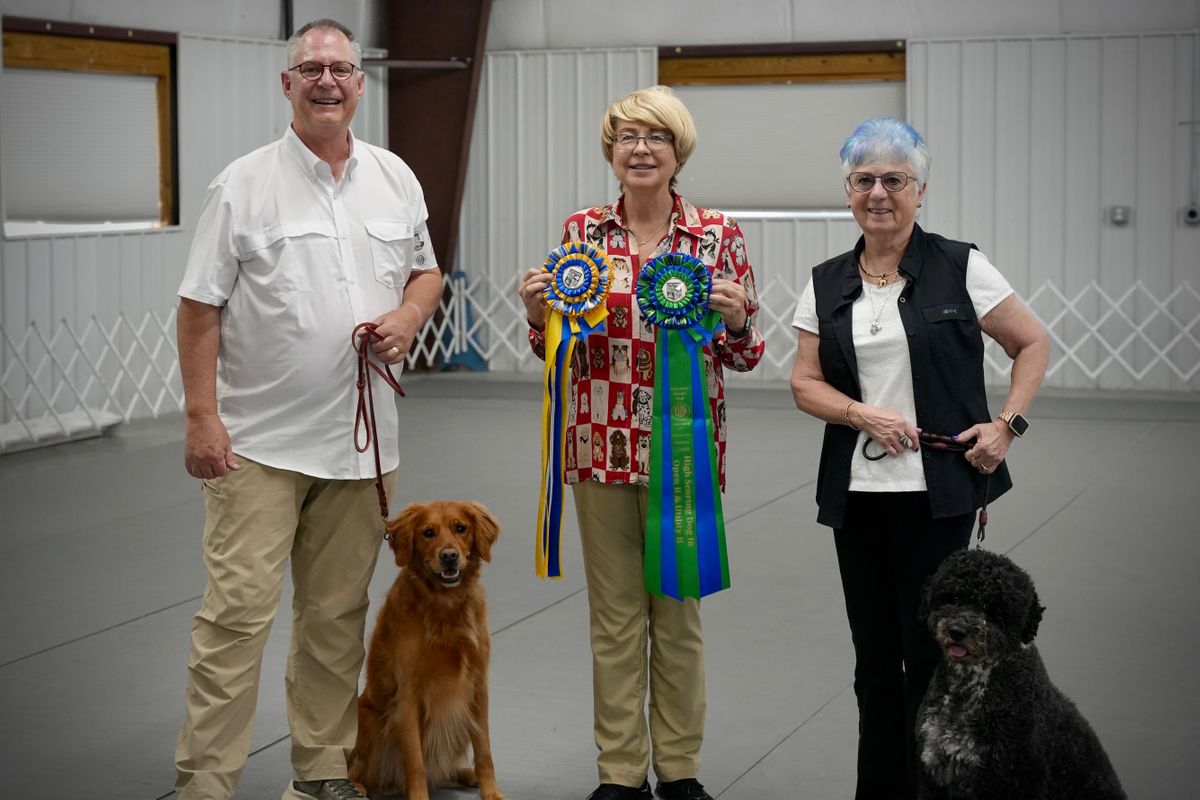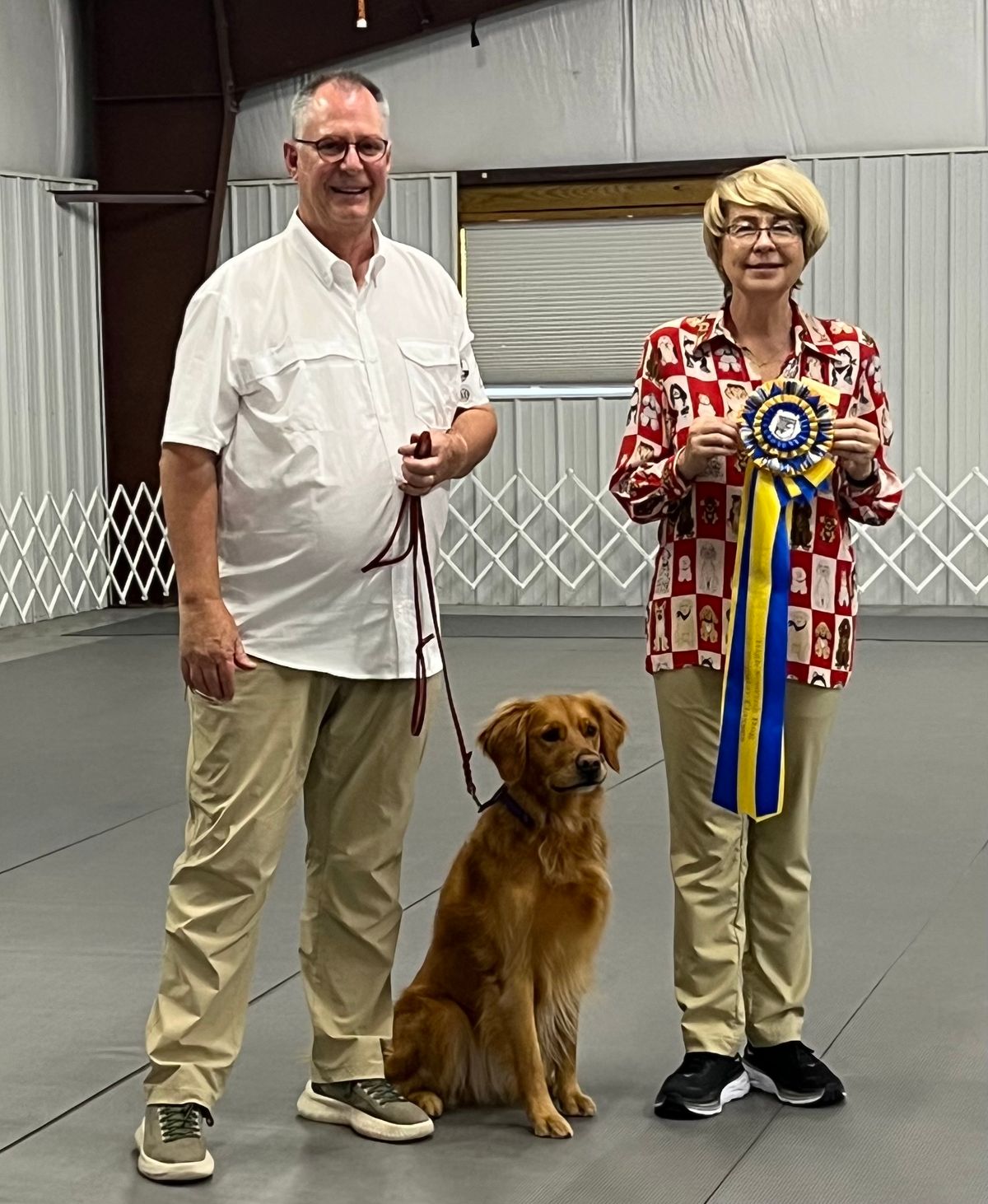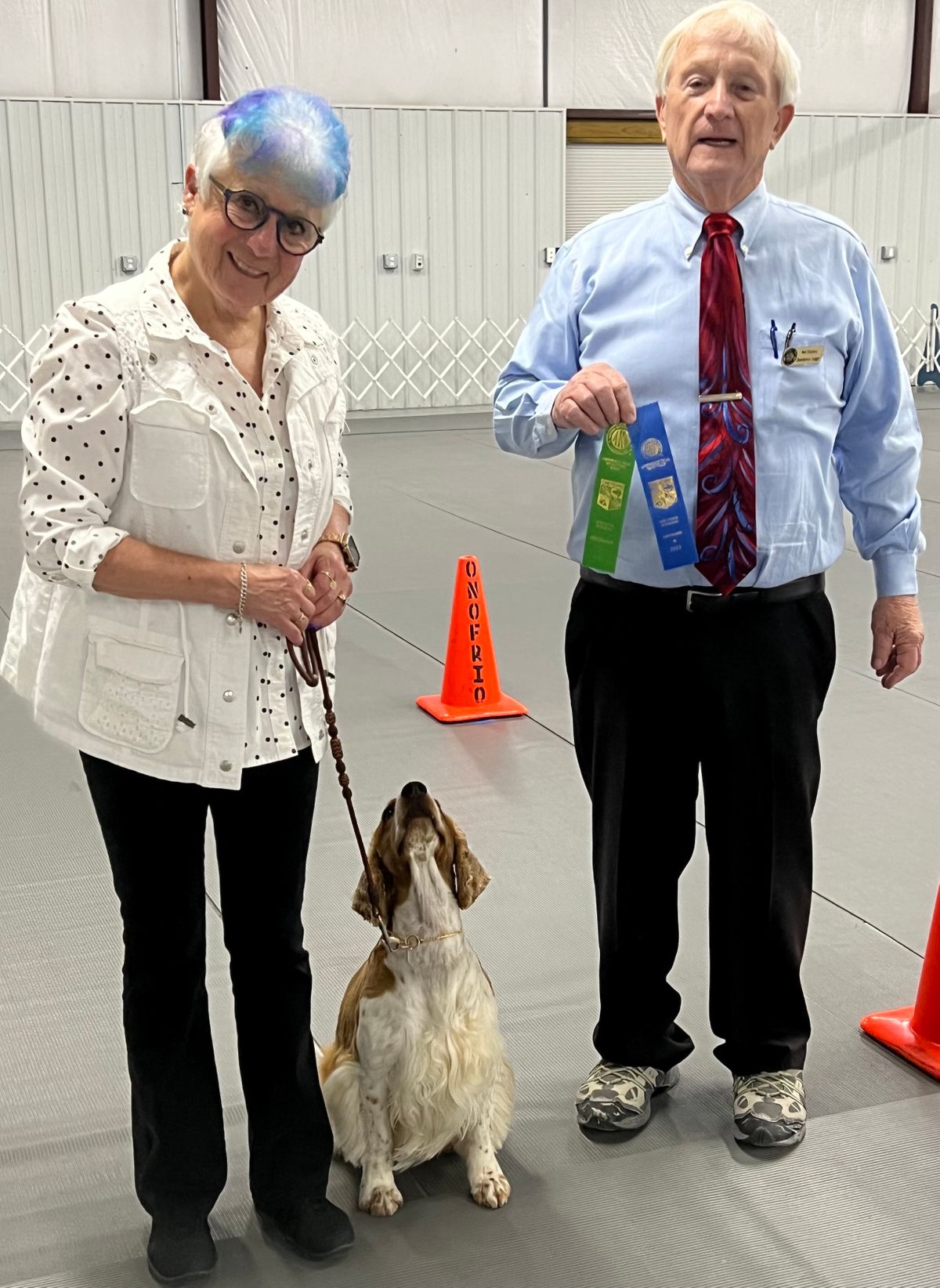2023 Dog Show Awards

David & Luke High in Trial; Gail & Brig High Combined
Cheyenne Kennel Club Judge Marina Polenova

High Combined Cheyenne Kennel Club
Gail & Brig

Judy & Czeska New title CD
Judge Joe Caputa

High In Trial GCHBrigUDX
CKC Judge Joe Caputa

Utility B 1st & 2nd Karen & Padime & Moby
Evergreen KC Judge Joe Caputa

High in Trial & High Combined
CKC- Judge Marina Polnova

David & Luke 2nd High in Trial for weekend
CKC-Marina Polenova

Gail & GCH Brig UDX
CKC- Judge Marina Polenova

New Titles CD
Kit & Tink; Tina & Zeke; David & Luke

CH CD - Birdie's debut in Open A 1st
CKC-Judge Mel Stanley

New Title Nina & Base CD
CKC-Judge Mel Stanley
